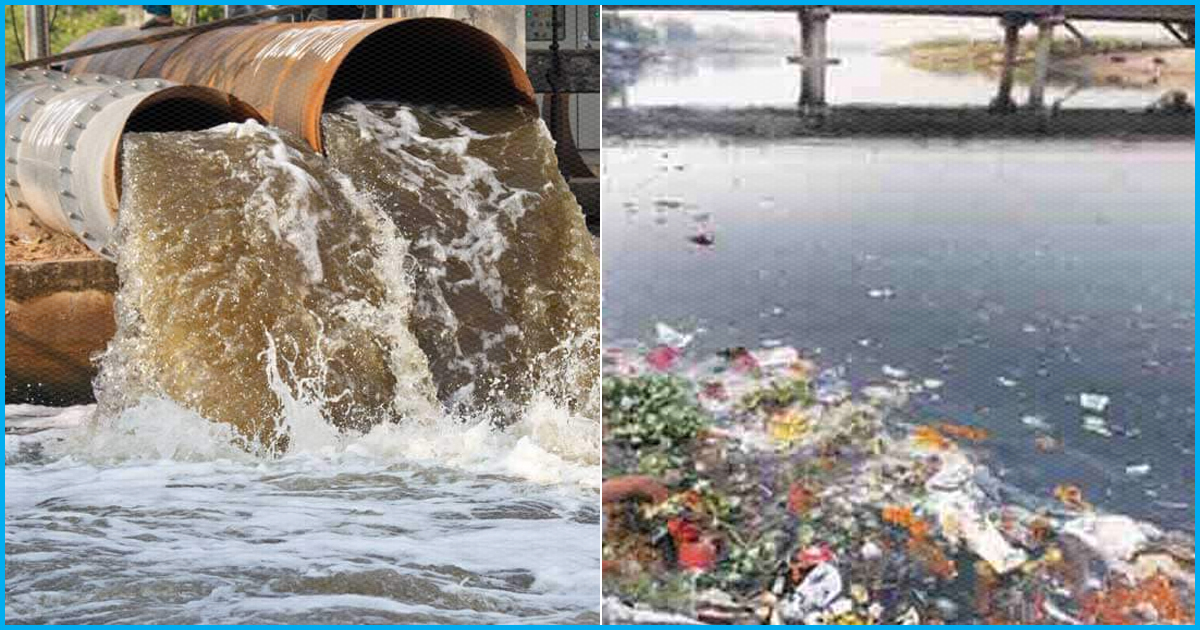The National Green Tribunal (NGT) on November 14 slapped a fine of Rs 50 crore on the Punjab government for polluting Sutlej and Beas rivers. The rivers have become polluted due to uncontrolled industrial discharge among other reasons.
NGT slapped a fine
The bench headed by Justice AK Goyal combined a few cases of river pollution in Punjab including the one which involved the death of fishes due to molasses discharge from a sugar mill in Gurudaspur district, back in May.
Molasses Leak From A Sugar Mill Kills Hundreds Of Fish & Turns River Beas Dark Brown
Molasses discharge in river Beas from the nearby sugar mill killed hundreds of fish and has compromised the lives and health of many people in Malwa region, Punjab.
Posted by The Logical Indian on Monday, May 21, 2018
Some other cases included a 2014 petition, Rajasthan-based activists Shabnam Godara and Sobha Singh claimed that polluted Sutlej and Beas river waters entered the state through the Indira Gandhi Canal, affecting eight districts, reported The Hindustan Times. The bench said that the Punjab Government has been given two weeks’ time to recover fines from industries.
Punjab Pollution Control Board (PPCB) Nagendra Benipal said, “Earlier a committee headed by Central Pollution Control Board, of which Punjab Pollution Control Board (PPCB) was a part, submitted a report saying it found that the industrial discharge was not being treated as treatment plants were not functioning.” The next date of hearing is reportedly on February 27.
Reportedly, in August 2018, the NGT formed a committee consisting of the members of the PPCB, the Central Pollution Control Board (CPCB) and Punjab environmentalist Balbir Singh Seechewal to look into the matter.
Seechewal claimed that the committee’s findings were contradictory to the Punjab Government’s claim that 33 out of 34 Sewage Treatment Plants (STPs) were functional. The Committee found that only one was functional along the Buddha Nullah and Kala Sanghian Drain.
Pollution is killing Indian rivers
In an assessment by the Central Pollution Control board (CPCB) of India in the year 2015, it was revealed that the number of polluted rivers in India has increased twofold from 121 to 275. “A primary cause is the quantity of sewage generated by cities and towns along polluted stretches,” reported The Guardian.
A study on Beas River is published in the journal Advancing Earth and Space Sciences. Its findings reveal that the high deposits of metals are found in the Beas River basin polluting the Kanjli wetland. They were exceeding the limits prescribed by the Bureau of Indian Standards. It was found due to direct discharges of industrial and domestic sewage at upstream points indicate the pollution of Kanjli wetland, which is a part of the Beas River basin.
With Government spending excess money on “Clean Ganga Project” which is in stagnation, it should invest more in productive plans to prevent the causes of pollution firsthand. The CPCB report also states that “given population increase, demand for freshwater for all users will be unmanageable”. With a vast crisis ahead, India is facing severe water problems and the government should intervene to resolve and take prompt actions.
The Logical Indian Take
It is saddening that Punjab which is called the land of five rivers is facing an acute shortage of clean water. A 2012 study by Environmental Health Action Plan revealed that in the village of Karmowal, Punjab, with a population of just 2,000, three of its residents died of cancer in past few years. The cause of cancer was attributed to the polluted water of Beas on the bank of which the village is situated.
While the respective pollution control boards are regulatory bodies, it is the local bodies and other departments which need to act in tandem to find a solution to the problem which is killing rivers in Punjab. The laws in place need to be implemented and the polluting industries should be made to follow norms.
Also Read: Punjab: Molasses Leak From A Sugar Mill Kills Hundreds Of Fish & Turns River Beas Dark Brown












